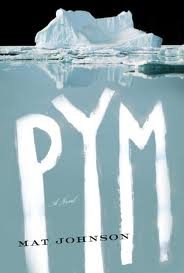What do you think?
Rate this book


Hardcover
First published March 1, 2011
"Or rather, why is the white dove so highly regarded because of its lack of pigmentation? How is it that something so minor as the color of a bird’s feathers can make the difference between being regarded as the international symbol for peace and [the pigeon] being the urban symbol of filth and nuisance? … Why are albino mice deemed worthy to be kept as pampered pets while their nearly identical darker brothers are viewed completely as pests? Does whiteness hold so much value for us that its presence is a wealth in itself?"
"Garth pulled out this print of a painting, all scrolled up, and dropped it in my lap. I unraveled it and saw a syrupy sweet landscape of the Catskills, the kind of vista painted on how-to shows in half and hour. The kind of painting Garth adored, done by that artist he idolized.
'It's called Stock of the Woods,' he said. 'It's a Thomas Karvel Hudson Valley School Edition. A tribute to the painters they used to have here. I have an original signed print. That's part of my nest egg, and you're they laughing at it. Look at it. Really look at it, you need to. Don't it make you all peaceful just looking into that world?
'Looks like the view up a Care Bear's ass.'"